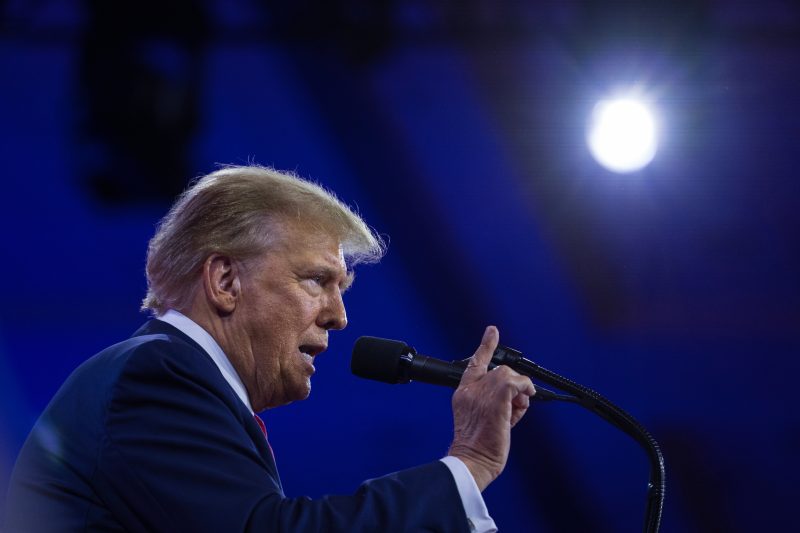In a recent controversial statement, President Donald Trump suggested that Jewish Democrats hate their religion. This remark has sparked heated discussions and debates across the political spectrum. Trump’s comments were made during a meeting with Orthodox Jewish leaders in New York City, where he discussed his support for Israel and his administration’s policies in the Middle East.
The President’s assertion that Jewish Democrats harbor animosity towards their own religion has been met with strong criticism from many Jewish individuals and groups. They have denounced his comments as divisive and offensive, arguing that political affiliation should not be equated with one’s commitment to their faith. Some have accused Trump of using inflammatory rhetoric to sow discord and alienate certain segments of the Jewish community.
It is important to note that American Jews, like many other religious and ethnic groups, hold diverse political views and opinions. Judaism, as a religion, promotes a wide range of values and beliefs, and individuals may interpret these teachings in different ways. Suggesting that Jewish Democrats hate their religion oversimplifies the complex relationship between political identity and religious faith.
Furthermore, Trump’s statement has reignited concerns about rising antisemitism in the United States. In recent years, there has been a noticeable increase in anti-Jewish incidents and hate crimes, leading many Jewish Americans to feel increasingly vulnerable and anxious about their safety. By making pointed comments about Jewish Democrats, the President risks contributing to a climate of intolerance and bigotry.
In response to the backlash, the White House has defended Trump’s remarks as part of his ongoing efforts to support Israel and strengthen ties with the Jewish community. They have emphasized the President’s record on issues such as moving the U.S. embassy to Jerusalem and confronting Iran’s influence in the region. Nevertheless, critics argue that Trump’s comments about Jewish Democrats are unhelpful and further polarize an already divided society.
Moving forward, it is crucial for political leaders to foster dialogue and understanding among all segments of the population, regardless of their religious or political affiliations. By promoting mutual respect and inclusivity, society can work towards building a more harmonious and cohesive community for all its members. Ultimately, embracing diversity and upholding shared values will be vital in overcoming societal challenges and advancing towards a more equitable future.


